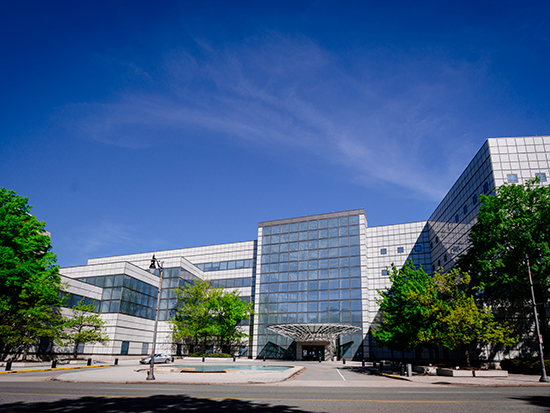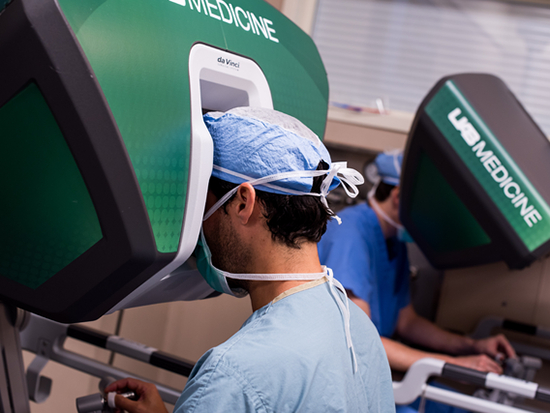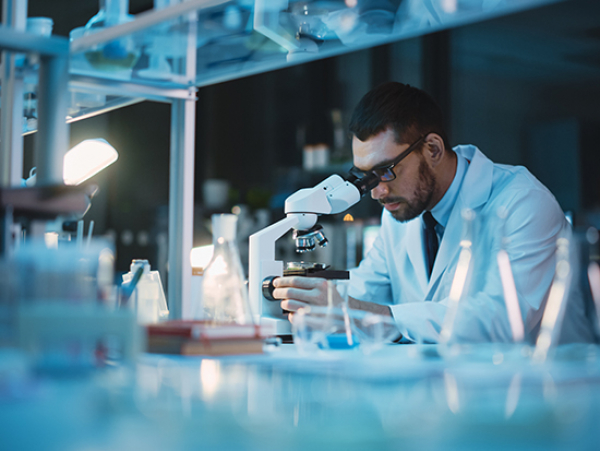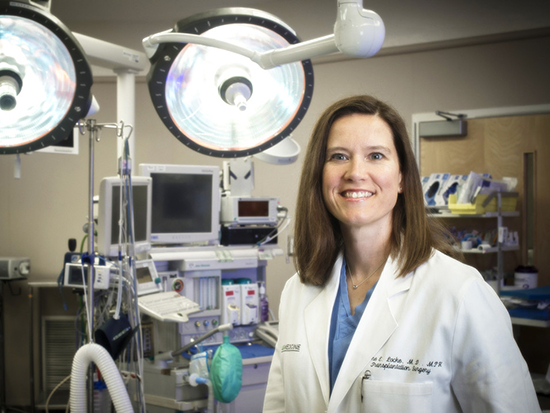|
Lesley E. Smythies, Ph.D. |
 |
Dr. Smythies earned her B.Sc. (Hons), A.K.C. at Kings College, London University, England and her Ph.D. at Wye College, London University. She did postdoctoral fellowships in the Department of Physiology and Biophysics at UAB and the Department of Biology at the University of York, England. She returned to UAB and joined the Department of Medicine as a Research Associate in 1998, advancing to Research Assistant Professor in 2002, Associate Professor in 2006 and full Professor in 2013. Dr. Smythies is a collaborative research investigator in the Mucosal HIV and Immunobiology Center (MHIC), Director of the Human Cells Core and Co-Director of the UAB Organogenesis Unit.
Dr. Smythies' research focus is human mucosal immunology, in particular the immunobiology of mucosal antigen presenting cells (macrophages and dendritic cells), and the host immunological response to parasite and bacterial pathogens. She focused originally on pulmonary immunology, helping to define the T cell cytokine regulation of the host response to Schistosoma mansoni. She then turned her investigative attention to the mucosal immune response to Helicobacter pylori. Using a mouse model of the infection that she developed, she has shown that H. pylori inflammation is Th1-mediated and with colleagues is exploring the role of gastric microbiota in promoting the protective T regulatory cell response of children versus adults to infection with H. pylori. Recent studies in her laboratory have focused on gastrointestinal extracellular (stromal) immune matrix regulation of primary human mucosal effector cells in mucosal infections and in IBD. In highly novel studies, she has shown that the lamina propria stroma (including intestinal stromal cells) plays a critical role in monocyte differentiation into non-inflammatory, but powerfully bactericidal, intestinal macrophages and she has elucidated the defective signal transduction pathway(s) underlying the down-regulated inflammatory response of intestinal macrophages to bacterial antigens. New studies elucidate how the lamina propria stroma also conditions intestinal dendritic cell and mucosal T cell function. Dr. Smythies was the first to identify, isolate and characterize human gastric dendritic cells and to show that the microenvironment of the gastric mucosa conditions and regulates gastric dendritic cell responses to H. pylori infection which, in turn, drive responsive CD4 T cell proliferation and IFN-g release against H. pylori.
Recent Publications:
1. Human intestinal macrophages display profound inflammatory anergy despite avid phagocytic and bacteriocidal activity. L.E. Smythies, M.Sellers, R.H. Clements, M. Mosteller-Barnum, G. Meng, W.H. Benjamin, J.M. Orenstein and P.D. Smith. Journal of Clinical Investigation 115:66-75, 2005.
2. Intestinal macrophages: unique effector cells of the innate immune system. P.D. Smith, C. Ochsenbauer-Jambor and L.E. Smythies. Immunological Review 2006:149-159, 2005.
3. Inflammation anergy in human intestinal macrophages is due to Smad-induced IκBα expression and NF-κB Inactivation. L.E. Smythies, R. Shen, D. Bimczok, L. Novak, R.H. Clements, E.R. Drelichman, D.E. Eckhoff, P. Bouchard, M.D. George, S. Dandekar and P.D. Smith. Journal of Biological Chemistry 285:19593-19604, 2010.
4. Human primary gastric dendritic cells induce a Th1 response to H. pylori. D. Bimczok, R.H. Clements, K.B. Waites, L. Novak, D.E. Eckhoff, P.J. Mannon, P.D. Smith and L.E. Smythies. Mucosal Immunology 3:260-269, 2010.
5. Dendritic cells transmit HIV-1 through human small intestinal mucosa. R. Shen, L.E. Smythies (Joint first authors), R.H. Clements, L. Novak and P.D. Smith. Journal of Leukocyte Biology 87:663-670, 2010.
6. Extracellular matrix-associated cytokines regulate CD4+ effector T-cell responses in the human intestinal mucosa. K.R. Huff, L.N. Akhtar, A.L. Fox, J.A. Cannon, P.D. Smith and L.E. Smythies. Mucosal Immunology 4:420-427, 2011.
7. Intestinal macrophages and response to microbial encroachment. P.D. Smith, L.E. Smythies, R. Shen, T. Greenwell-Wild, M. Gliozzi, and S.M. Wahl. Mucosal Immunology 4:31-42, 2011.
8. Stromal Regulation of Human Gastric Dendritic Cells Restricts the Th1 Response to H. pylori. D. Bimczok, J.M. Grams, R.D. Stahl, K.B. Waites, L.E. Smythies, and P.D. Smith. Gastroenterology 141:929-938, 2011.
9. H. pylori infection inhibits phagocyte clearance of apoptotic gastric epithelial cells. D. Bimczok, L.E. Smythies, K.B. Waites, J.M. Grams, R.D. Stahl, P.J. Mannon, S. Peter, C.M. Wilcox, P.R. Harris, S.Das, P.B. Ernst and P.D. Smith. Journal of Immunology 190:6626-6634, 2013.
10. Down-regulated Th17 responses are associated with reduced gastritis in Helicobacter pylori-infected children. Serrano, C., Wright, S., Bimczok, D., Shafffer, C.L., Cover, Shaffer, C.L., T.L. Cover, Venegas, A., Smythies, L.E., Harris, P.R. and Smith, P.D. Mucosal Immunology 6:950-959, 2013.
11. Exosomes in the gut. Smythies L.E. and Smythies J.R. Front Immunol 5: 104, 2014.
12. Microbiota, the immune system, black moods and the brain-melancholia updated. Smythies, L.E. and Smythies J.R. Front. Human Neuroscience 8: 720 2014.
13. Human Gastric Epithelial Cells Contribute to Gastric Immune Regulation by providing Retinoic Acid to Dendritic Cells. Bimczok, D., Mannon, P., Peter, S., Wilcox, C.M., Harris, P.R., Smith, P.D., Smythies, L.E. Mucosal Immunology doi: 10.1038/mi2014.76, 2014.
14. Cytomegalovirus Enhances Macrophage TLR Expression and MyD88-mediated Signal Transduction to Potentiate Inducible Inflammatory Responses. Smith, P.D., Shimamura, M., Musgrove, L., Bimczok, D., Novak, L., Ballestas, M., Fenton, A., Dandekar, S., Britt, W.J. and Smythies, L.E. J Immunology 193: 5604-12 2014.






